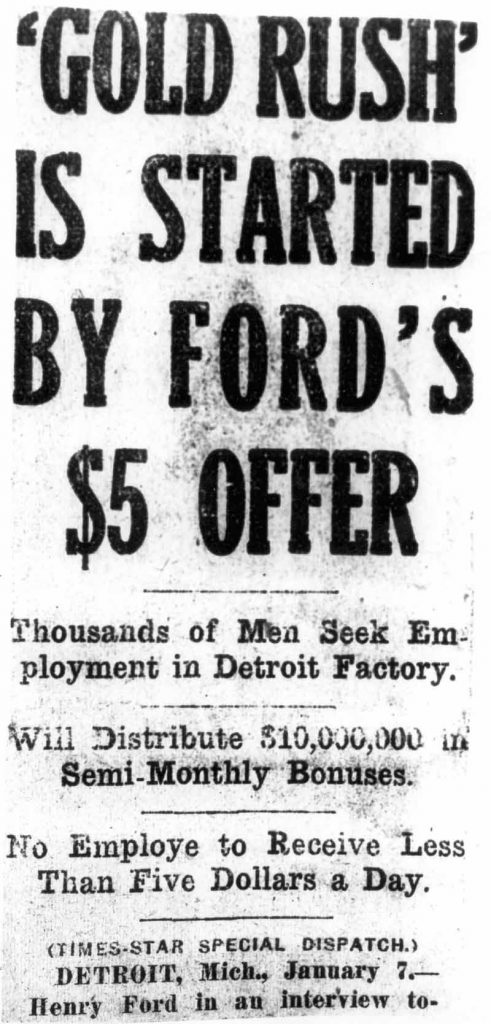Is this a Henry Ford $5-a-day moment for the 21st century?

Five-dollars-a-day newspaper clipping
Could the news that three of America’s most influential companies will form an independent health care company to serve their employees in the United States be a game-changing moment?
Could it be a Henry Ford momen? The benefits parallel of Ford’s 1914 decision to pay his employees $5.00 a day, over twice the average wage for automakers at the time?
Thus Ford reduced the high turnover of employees and the losses caused by attrition, creating an eco-system that allowed for the company to profit and the workers to share in it, while having more money to buy products and leisure enough to enjoy them. Ford thus created what economists call a virtuous cycle of growth.
Now, consider the issues facing American workers today.
Healthcare is one of the biggest problems. Just the other day, I met someone who went bankrupt because he and his wife were paying for his mother-in-law’s treatment for cancer. His mother-in-law had health insurance but the treatment costs were still too high for the couple to viably cover. They went bankrupt and eventually recovered momentum. Today, they’re working with the federal government.
This brings me to Amazon, Berkshire Hathaway and JPMorgan Chase’s decision to offer their own employees health care.
They say they want to provide simplified, high-quality health care for their employees and their families, and at a reasonable cost. The initiative is to be “free from profit-making incentives and constraints.”
To me that sounds like a Henry Ford moment. Creating a benefit that would be an enormous draw for workers because healthcare is the biggest imponderable in American life now.
It might also push other companies to start an imitative virtuous cycle.

